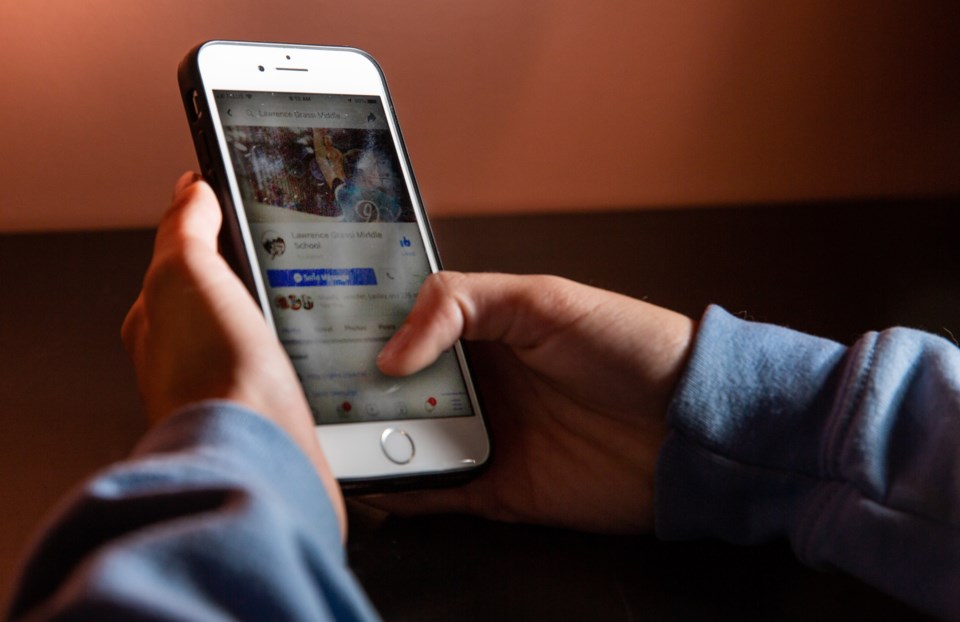Starting in September, Sarnia and surrounding-area students will have new rules for when they can – and can’t – use their cellphones at school.
“Change can be difficult, but we've got multiple months to help prepare and for students to know,” John Howitt, director of education for the Lambton Kent District School Board told the Journal this week.
The upcoming changes will take place following an announcement Sunday from Education Minister Stephen Lecce. In the fall, students in kindergarten to Grade 6 will need to keep their phones on silent and “out of sight” for the school day, unless given permission by their teacher. Students in grade seven to 12 can use their cellphones during class time, if their teacher allows it. The new rules, according to Lecce, are necessary to help students focus in class.
According to a 2023 UNESCO report students can take up to 20 minutes to refocus on what they were learning after focusing on a distraction, leading to poor academic performance.
“Right now, a teacher could say to their Grade 7 students 'everyone, your phone is to be away all day and you're not permitted to use it’ and we do this [successfully] on a regular basis,” says Scott Johnson, director of education at the St. Clair Catholic District School Board. “But certainly we will comply with the ministry’s direction to have a stricter process.”
Howitt agrees.
“We have students who have long bus rides with our significant rural population. Sometimes they like to have [their cell phones] to start their homework on the bus or to communicate and catch up — so, we'll have a range, but will support the change as best we can.”
As part of these changes, report cards will also include comments on students' distraction levels in class, and all teachers will undergo mandatory training, according to the province.
Using cellphones in class is already banned in Quebec and British Columbia, but Ontario will be the first province to block access to social media platforms on school networks and devices.
The Progressive Conservative government originally banned cell phone use in classrooms in 2019, saying students were only allowed to use cell phones for learning-purposes, health or special access needs, but left it up to individual boards and schools to implement.
The difference between the 2019 ban and the latest announcement is that there will be consistency in applying and enforcing the new measures across all school boards in the province, according to Lecce.
“I think a consistent approach is always easy when you're trying to implement a change,” says Howitt.
“When we receive more information, we will rewrite our policies and procedures. It's likely going to impact four or five policies that need to be revised between now and the fall to align with the new regulations,” says Johnson.
Similar to tobacco, nicotine and cannabis products, vaping will also be banned in all schools.
Students caught carrying such products will have them confiscated, and schools will be required to notify parents.
“Vaping can be far more clandestine than smoking because the smell of the smoke from a cigarette or marijuana cigarette lingers, but that's not the case with vaping,” Howitt explains. “So it's harder to detect and easier to sneak, if you will.”
Unlike cigarette smoke, using a vape does not trigger the fire alarm systems currently installed in most public spaces. The government said it has set aside $30 million from its 2024 budget in order to install vape detectors and other security upgrades in schools.
“The new implementation will have some staff responsibilities that come along with it, so certainly more work will come from it but it's in service of a very important goal that is a safe, respectful, and healthy environment,” says Johnson.
